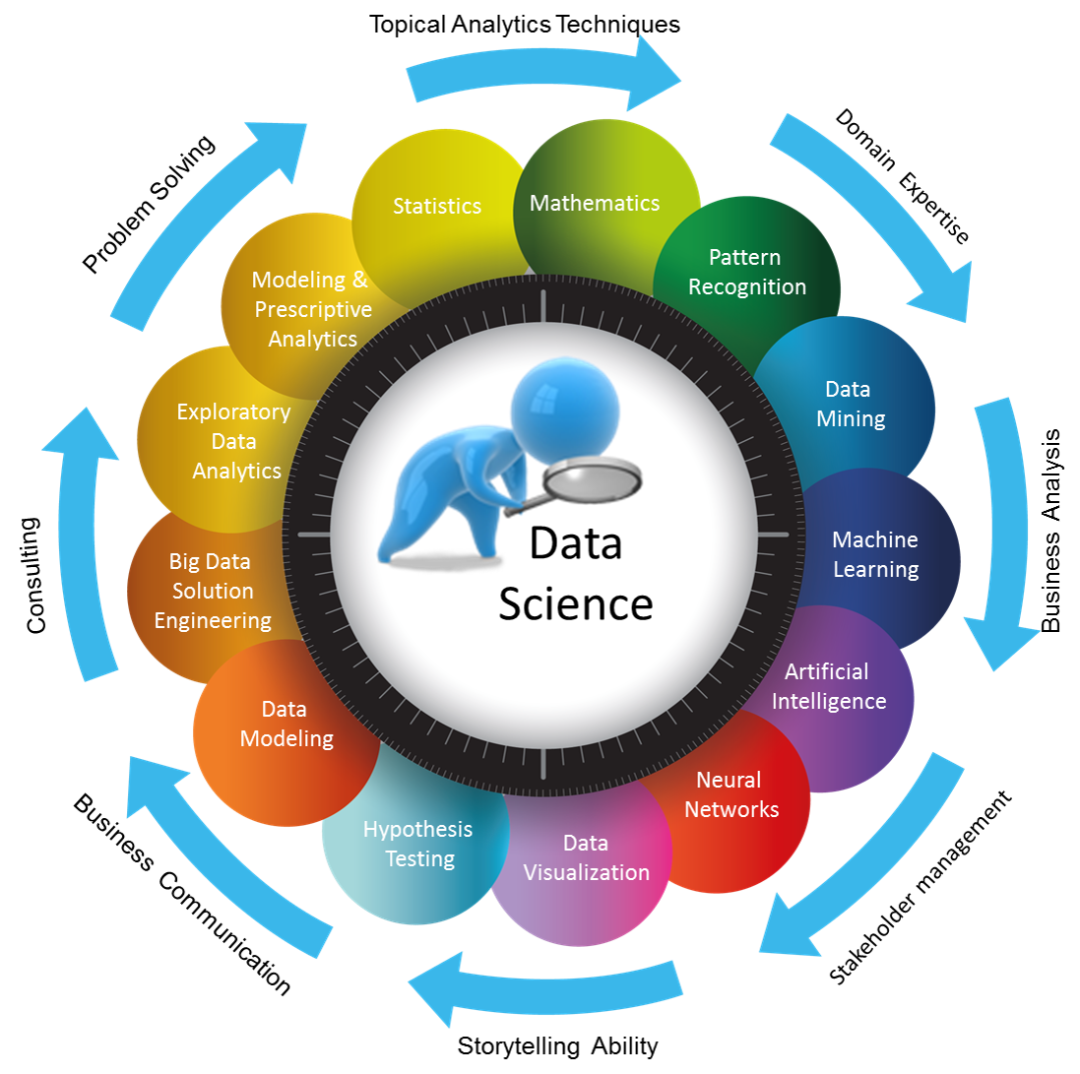Key aspects of data science:
Data collection and preparation:
This involves gathering data from various sources, cleaning it, and transforming it into a usable format for analysis.
Data analysis and interpretation:
Data scientists use statistical methods, machine learning algorithms, and other techniques to analyze data, identify patterns, and draw meaningful conclusions.
Data visualization and communication:
This involves presenting findings in a clear and concise manner, often using charts, graphs, and other visual aids, to effectively communicate insights to stakeholders.
Problem solving and decision-making:
Data science helps businesses and organizations identify problems, develop solutions, and make informed decisions based on data-driven insights.
Why is data science important?
Increased decision-making accuracy:
Data science provides a more objective basis for decision-making, reducing reliance on intuition and gut feelings.
Improved efficiency and productivity:
By identifying patterns and trends in data, data science can help businesses optimize operations and improve efficiency.
Enhanced innovation:
Data science can help businesses discover new opportunities and develop innovative products and services.
Greater competitive advantage:
Businesses that effectively use data science can gain a competitive advantage by making more informed decisions and adapting more quickly to changing market conditions. The U.S. Census Bureau defines data science as "a field of study that uses scientific methods, processes, and systems to extract knowledge and insights from data." So, this is a field that works with data that doesn't fit neatly into rows and columns—and, in the end, derives relevant information from it.
Data science offers numerous benefits, including improved decision-making, enhanced customer experiences, increased efficiency, and better risk management. It also enables businesses to uncover new opportunities, automate tasks, and predict future trends.
Here's a more detailed look at the benefits:
Improved Decision-Making:
Data science provides insights and data-driven evidence to support better decisions in various fields, from business strategy to healthcare.
Enhanced Customer Experience:
By analyzing customer data, businesses can personalize experiences, improve service, and tailor marketing efforts.
Increased Efficiency:
Data science can automate tasks, optimize processes, and streamline operations, leading to greater efficiency and cost savings.
Risk Mitigation and Fraud Detection:
Data science helps identify and mitigate risks, including fraud, by analyzing patterns and anomalies in data.
New Opportunities and Innovation:
Data science can uncover hidden patterns and relationships in data, leading to the discovery of new opportunities and the development of innovative products and services.
Automation of Tasks:
Data science enables the automation of repetitive and time-consuming tasks, freeing up human resources for more strategic work.
Career Opportunities:
The demand for data science professionals is high, creating a wide range of career opportunities in various industries.
Better Understanding of Data:
Data science helps organizations interpret complex data, understand patterns, and identify areas for improvement.
Generative AI is experimental. Learn more
- Teacher: Admin User
